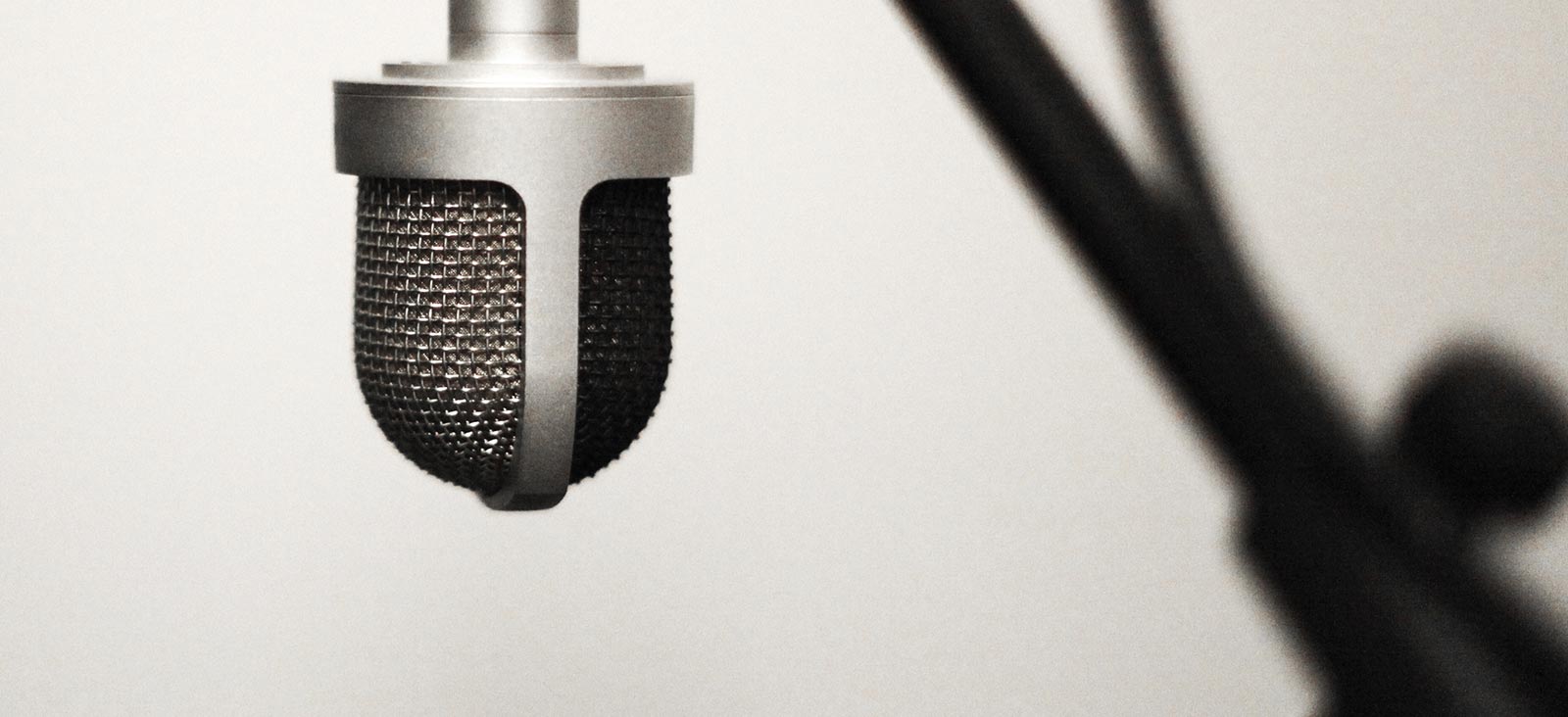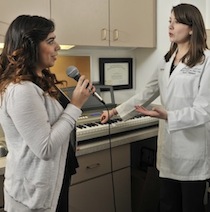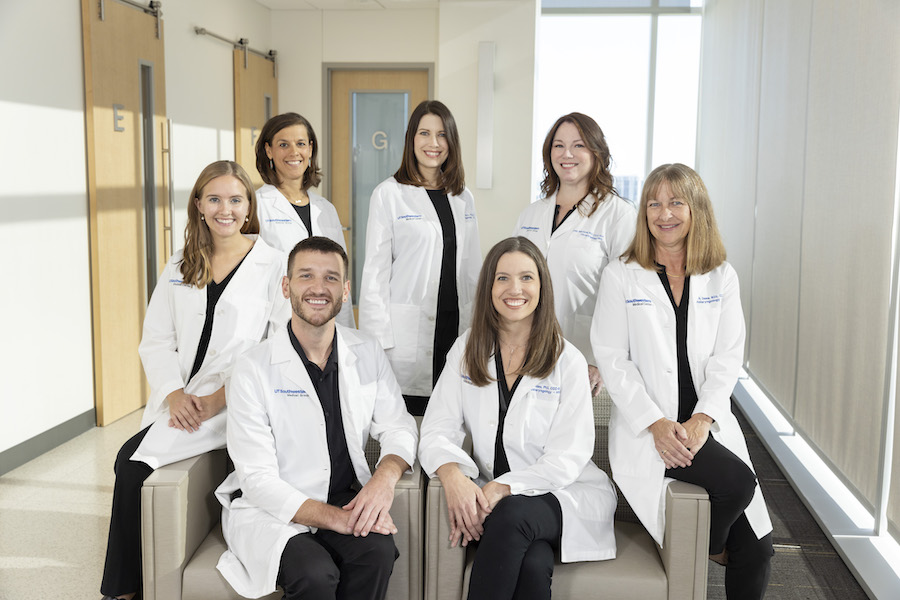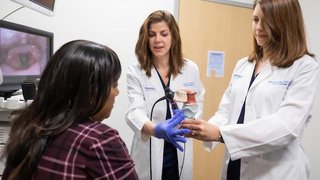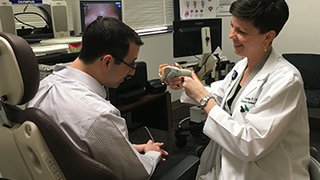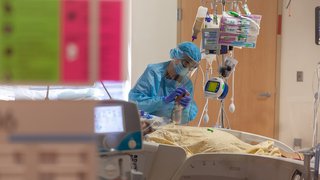How Are Professional Voice Problems Diagnosed?
At UT Southwestern, our professional voice care team begins with a thorough evaluation that includes a:
- Physical exam, with an inspection of the vocal cords
- Review of personal and family medical history
- Discussion of symptoms and occupation
To examine the vocal cords, we often use a videostroboscope, which is a telescope-like camera with a flashing light that provides a magnified, slow-motion view of the vocal cords as they vibrate.
In the procedure, we place the videostroboscope on the tongue or pass a flexible version through the nose. The scope shines a strobe light on the vocal cords while the patient makes sounds.
The recorded exam, which we review with each patient, provides specific details about the vocal cord vibratory pattern. It also allows the laryngologist and speech-language pathologist to observe specific abnormalities of the vocal cords.
Depending on the results of our evaluation and videostroboscopy, we sometimes use additional tests, such as:
- Laryngeal electromyography (EMG): Small needles inserted through the skin to measure electric currents in voice box muscles
- Sound (acoustic) analysis: Computer analysis that measures irregularities in the sounds produced by the vocal cords

